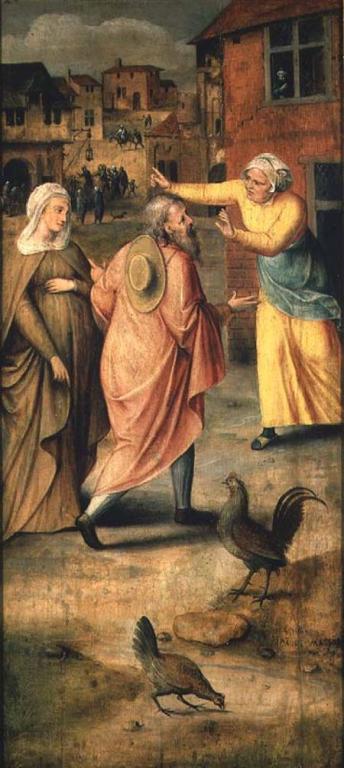There was no room at the inn for Mary and Joseph, due to the crowds in Bethlehem there for Caesar’s census. So the couple took shelter in a stable, where Jesus was born and placed in a manger. Instead of blaming the innkeeper, we can learn something about the Gospel that is highly relevant to our own day.
So says the renegade Baptist Russell Moore, drawing on the renegade Catholic Thomas Merton, in his meditation in Christianity Today entitled ‘No Room in the Inn’ Was Good News.
He points out that having a census would remind Jews of David’s sin in numbering the people (1 Chron. 21:1–17). What’s so bad about that?, we wonder. We Americans have a census every 10 years and we are always surveying, measuring, and quantifying statistics. But David’s census led to a harsh judgment from God that resulted in a plague stopped only by God’s intervention at the threshing floor of Ornan the Jebusite, a place of Law and Gospel that would become the site of the Temple.
For why this counting Moore quotes the ancient Jewish scholar Rabbi Eleazar: “Whoever counts Israel transgresses a prohibition, as it is said, ‘Yet the number of the children of Israel shall be as the sand of the sea, which cannot be measured” (an allusion to Genesis 32:12).
Could it be that God does not approve of our constant attempts to quantify human beings, to reduce complex, unique persons to abstract numbers?
Then Moore turns to Merton:
“Why was the inn crowded?” Merton asks. “Because of the census, the eschatological massing of the ‘whole world’ in centers of registration, to be numbered, to be identified with the structure of imperial power,” he answered. “The purpose of the census: to discover those who were to be taxed. To find out those who were eligible for service in the armies of the empire.”
He goes on to say that “the numbering of the people of God by an alien emperor, and their full consent to it, was itself an eschatological sign.”
But the point of the Incarnation was not the absorption of the person into a nameless, faceless mass. “It was therefore right that there should be no more room for him in a crowd that had been called together as an eschatological sign,” Merton writes. “His being born outside that crowd is even more of a sign. That there is no room for Him is a sign of the end.”
Merton complained that our age is one of crowdedness, an era in which our technological mastery and connectedness leave us with no room for solitude or thought—a time in which “the crowd” leads to more loneliness than ever. . . .
“Into this world, this demented inn, in which there is absolutely no room for Him at all, Christ has come uninvited,” Merton wrote. “But because He cannot be at home in it, because He is out of place in it, and yet He must be in it, His place is with those others for whom there is no room.”
Today we are seeing new efforts at collectivism, in which individual human beings are subsumed into tribes, races, and sexual identities and treated according to the categories to which they are assigned. Meanwhile, we are obsessed with bigger and bigger numbers, from online hits to the size of our churches.
There are some people, though, who feel lost in the crowds, who feel “there is no room in the inn” for them, as well. And maybe “there is no room in the inn” for the Church, which is being nudged out of the public square, or for Christians, whose numbers are dwindling and feel like they have become aliens in a strange land. But it’s better to be in the stable with the Christ Child and other people who know Him and seek Him.
“Instead of Caesar’s statistics,” More concludes, “we find the kind of promise that results in a number no man can count—and instead of a place with no room, we will find a house with many mansions.”
Painting by Jan Matsys (1558), Public domain, via Wikimedia Commons














